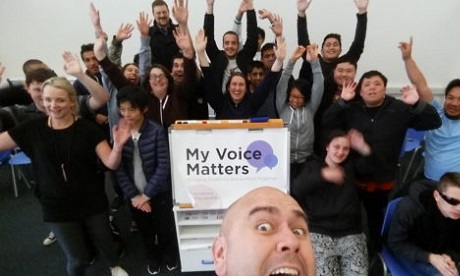Act leader David Seymour wants the Human Rights Commission abolished because of its “left-wing manifesto.”
“The Commission is a hard-left organisation masquerading as a government department,” he says.
The Human Rights Commission today is calling for the new government to honour human rights. To this end, it has laid out 39 issues it wants politicians to adopt.
These include creating a written constitution that honours Te Tiriti o Waitangi, makes the minimum wage the living wage, creates more employment opportunities for disabled people, builds decent and affordable homes and formulates a national action plan against racism.
It also wants a national strategy to deal with family violence, an end pay discrimination, for police to collect hate crime data and to make the health and disability system work for all disabled people.
Chief Human Rights Commissioner Paul Hunt says human rights place responsibilities on governments and individuals “to embrace diversity, support vibrant communities and not be racist or homophobic.”
However, Seymour says the manifesto shows the Commission is “no longer interested in helping real people with actual human rights issues, but simply advancing a left-wing agenda.”
In his view the Commission has become “irrelevant, and even dangerous when it cannot defend our most basic human rights.”
He sees it as a “highly politicised, left-wing organisation,” that doesn’t help people’s human rights at all.
“Act sees no purpose for it and would abolish it completely,” Seymour says.
The Human Rights Commission’s 39 human rights issues were collected from the Chief Human Rights Commissioner Paul Hunt, Disability Rights Commissioner Paula Tesoriero, Race Relations Commissioner Meng Foon and Equal Employment Opportunities Commissioner Saunoamaali’i Dr Karanina Sumeo.
Some of the items on the Commissioners’ wishlist include:
- Everyone having a warm, dry, safe, decent home
- A community-based health system (physical and mental health) for everyone
- Public officials respecting the human rights promises governments have made to
all of us - A welfare system ensuring a secure and dignified life for everyone
- Honouring and implementing the growing partnership between kāwanatanga (Crown) and
rangatiratanga (hapü and iwi) - Establishing a Human Rights Commissioner for Older People
- Respecting disabled people by upholding their dignity and celebrating their
contributions - Giving disabled young people a fair go in our education system
- Public information provided in ways, such as te reo Māori, NZ Sign Language, and
braille, so that everyone can understand - Collecting better information about disabled people so services can be better designed
for them - Ensuring government contracts have job targets for Māori, women, disabled people,
55+, vulnerable youth, Pacific Peoples and ethnic minorities - Making the minimum wage a living wage
- Eliminating modern slavery and exploitation in the workplace
- Establishing a National Action Plan Against Racism
- Teaching Te Tiriti o Waitangi, local histories and human rights in schools
- Police collecting hate crime data
- Making government systems work for Māori e.g. health, justice, education, Oranga
Tamariki, welfare and housing.
Source
- NZ Herald
- Supplied
- Image: Howick and Pakuranga Times
